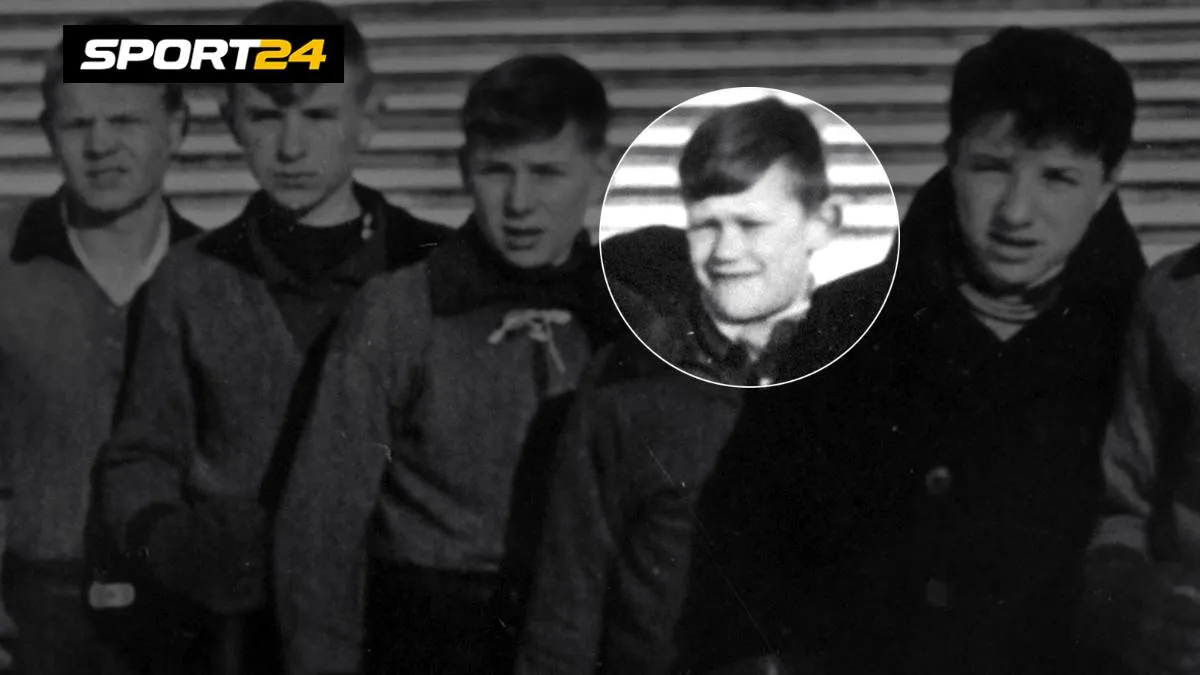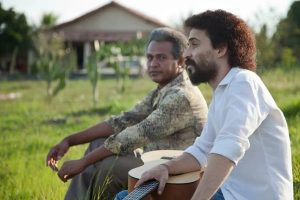
He plowed at the factory at 14 hours, helped the front, dreamed of getting to the war. History about the legend of CSKA Bobrov
Crime years. Soon after the start of the Great Patriotic War, the Bobrov family moved to Omsk – the plant was evacuated there, at which the father of Vsevolod worked. Vladimir Bobrov – the eldest brother of the future star of CSKA, the national team of the USSR and all world hockey – was almost immediately drafted into the army. At the beginning of 1942, he graduated from the accelerated course of a military school and was sent to the front as the commander of the fire platoon of the artillery-green part. At the same time, the eldest of the Bobrov brothers dreamed of being in the war and helping his homeland in the fight against the Nazis. Therefore, he met this news with great joy. The letters that Vladimir sent to relatives were also full of optimism and faith in an imminent victory. Here is the content of one of the messages that he addressed to his father: “Tell Sevka, so that, despite such a harsh time, the sport does not throw for anything. Here, on the forefront, you especially understand what a huge hardening was given to us by children's games. Athletes, people well trained, much easier to endure combat hardships and, as a rule, behave during the shelling, attacks and other troubles of the rest of the rest ”.VideoWhile the older brother risked his life at the front, Vsevolod also did not sit back. The very next day after moving to Omsk, the future professional athlete helped to disassemble trains with evacuated equipment. He and other workers of the plant were set the task – in the shortest possible time to turn a premises that previously served as a house for an agricultural institute into a full -fledged plant. To say that this mission required a huge amount of time and effort is to say nothing. Under ordinary circumstances, the implementation of such a task could take months. But during the Great Patriotic War, the effectiveness of the work of many enterprises and production increased significantly, since people worked almost around the clock. So it was in the case of our hero-the 14-year-old Vsevolod and other workers plowed 14 hours a day, after which they were replaced by other hard workers. The situation was complicated by the rainy season, which Lily almost ceasing for several months. Nevertheless, Bobrov and the company perfectly coped with the task assigned to them. “When, much earlier, the plant was restored, our jubilance had no borders. War out everyday life began. I worked as a mechanical collector in the workshop, where artillery sights were manufactured. And for some reason it always seemed to me-although I knew that it was a dream, no more-that the sights made by me would someday come to Brother Volodya, to his comrades, to the battalion where Fedya Chistyakov was fighting. The party, the Soviet government turned to the people with a call to do everything for the front, everything for victory. And we gave our forces, knowledge, energy to the great cause of our struggle. It happened that we did not leave the factory, spending the night in the workshops right there – some on the earthen floor, some on the same straw. However, “sleeping” is not the right word. A few hours, sometimes only two or three, anxious oblivion-and again on the legs. After all, a plan needs a plan, because the front needs weapons, ”wrote Vsevolod Bobrov in the book“ The most interesting match. ”There are rare hours when the workers did not work at their machines, they spent on a football platform specially created at the factory court. As Bobrov admitted, the game of football perfectly relieved fatigue and charged the body with a new portion of energy necessary for many hours and monotonous work.VideoDespite the constant employment at the factory, Vsevolod cherished the dream of going to the front after his brother. He came to the military registration and enlistment office several times to find out if the agenda was discharged in his name. But each time Bobrov replied that as soon as he needed it, they would immediately give him to know about it. And in the end this moment has come. In August 1942, he was awarded the agenda. However, before going to the combat zone, Vsevolod had to undergo training at the Omsk Military School. “To change a person into military uniforms, having removed a civilian dress from him, not for long. The removal of a civilian nature into a military man is a much more complicated matter. How many new skills have been pretended to be acquired, how much will, courage, strength and knowledge – most importantly, knowledge – you need to a person who is preparing to protect the homeland with weapons in his hands. Field exercises, campaigns with combat firing, night guard, weapons theory, and the tactics of modern battle … Among these and many other objects, the last place was occupied by physical training. Despite the harsh wartime, great attention was paid to physical education and sports. A football team was created at the school, which took part in the Siberian Cup draw. I also played in this team, ”Vsevolo recalled the front of the front Bobrov. The head of the school, in which Vsevolod was trained, came a telegram. It posted a challenge to a young athlete to a football team of the Central House of Artists. There he spent 2 years, after which he stuck to hockey and achieved great success in this sport, giving him almost 10 years. So, largely thanks to a happy chance, the country has preserved one of the most outstanding hockey players in the history of the USSR.

